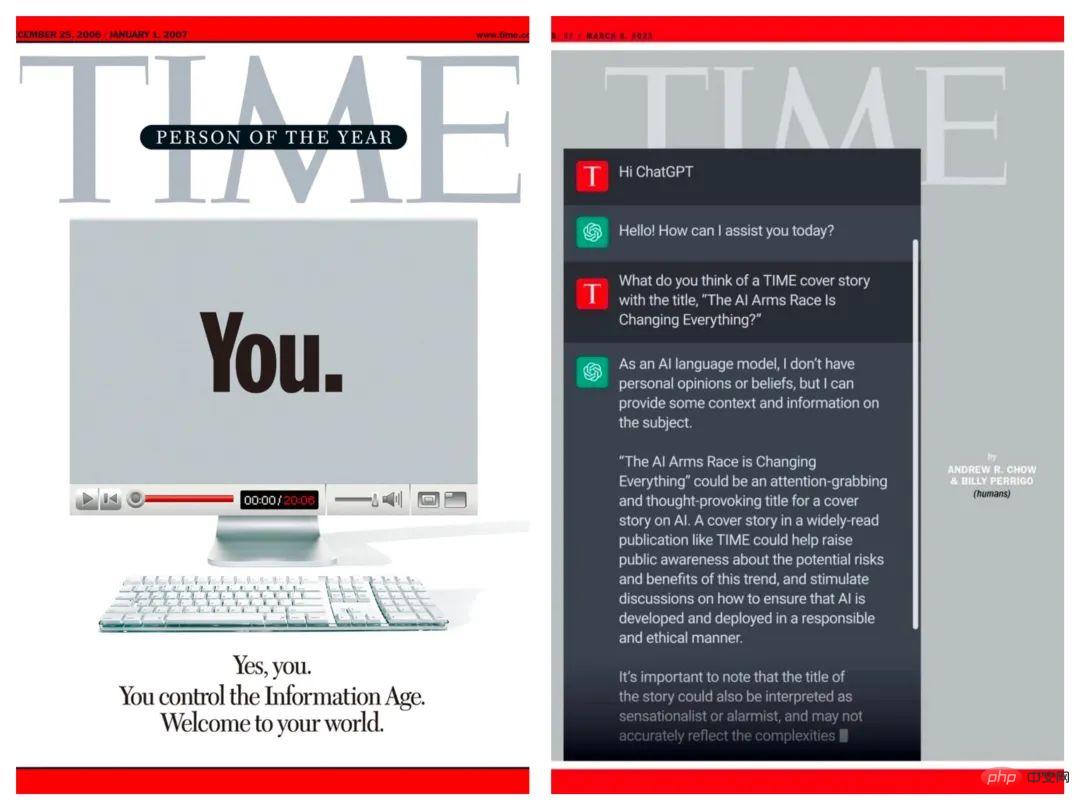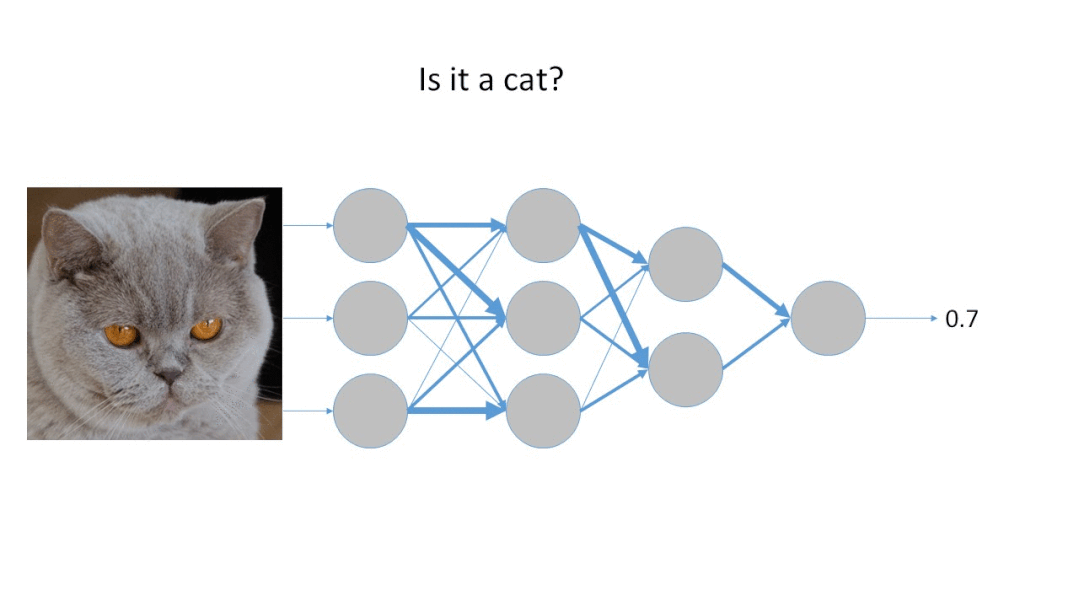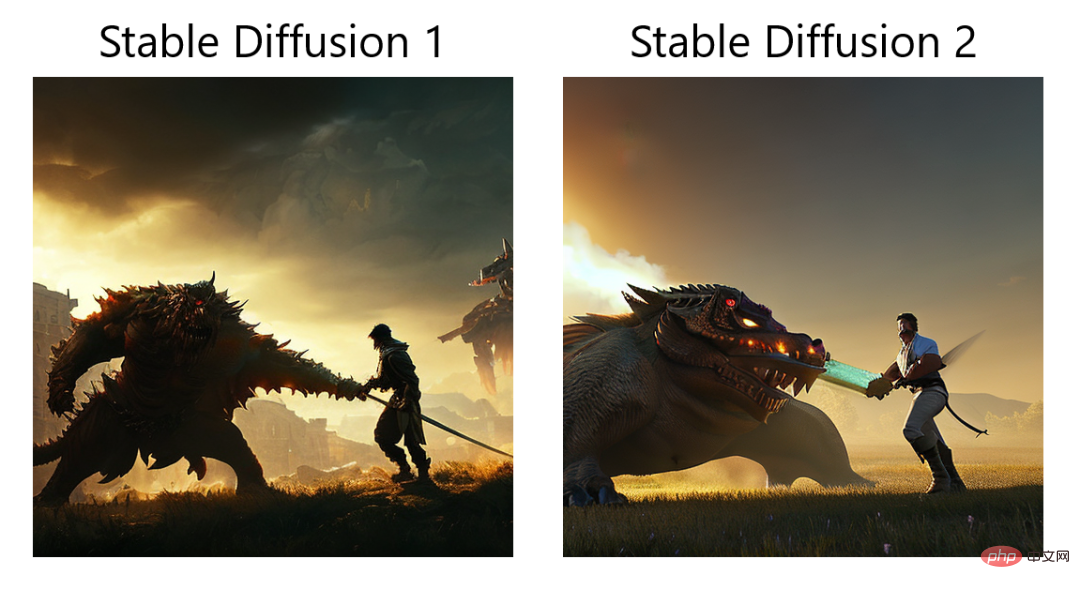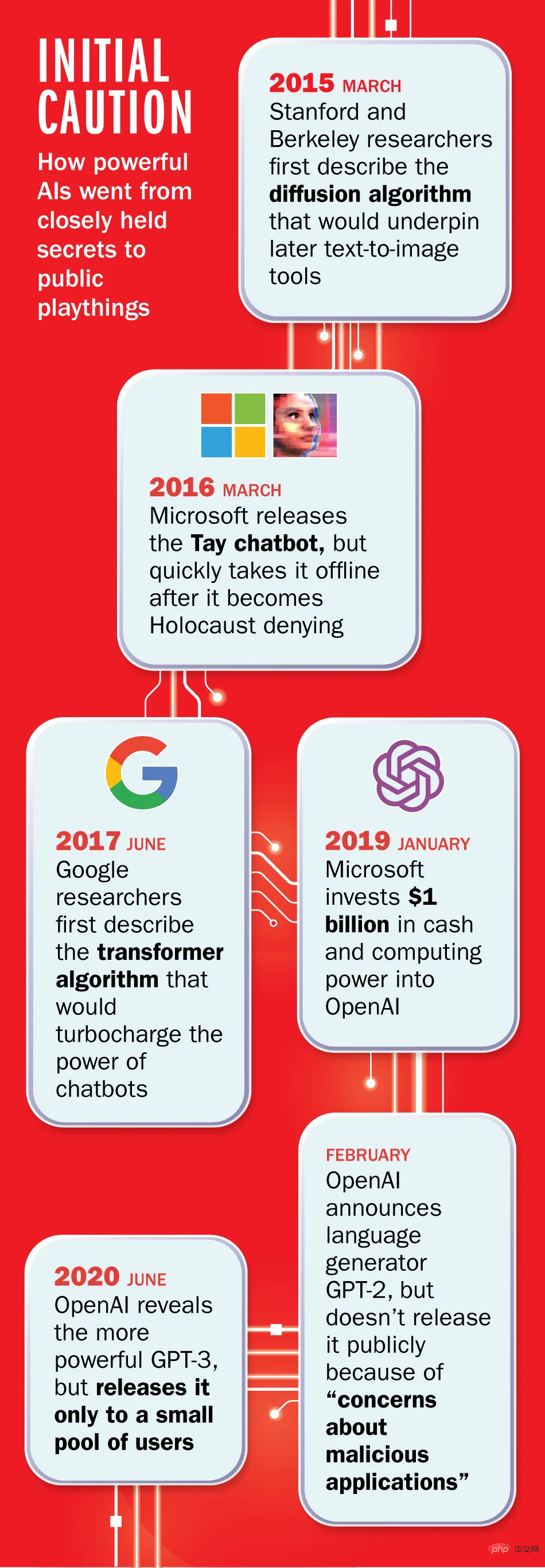Home >Technology peripherals >AI >OpenAI wins ChatGPT competition and makes Time cover headlines
OpenAI wins ChatGPT competition and makes Time cover headlines
- WBOYWBOYWBOYWBOYWBOYWBOYWBOYWBOYWBOYWBOYWBOYWBOYWBforward
- 2023-04-21 09:34:081700browse
In 2006, the Internet made everyone become the protagonist of the era. Therefore, TIME selected "YOU" as the Person of the Year.
#In just 17 years, the times have undergone major changes.
#Nowadays, the AI chatbot ChatGPT breaks out of the trend.
what does that mean?
AI becomes its own protagonist, creating, writing code, replying to emails...

And this is just the beginning...
The AI arms race is beginning
Since 2014, with the proposal and iterative update of deep learning algorithms represented by generative adversarial networks (GAN), generative AI has entered a new era.
#Until 2022, AIGC has entered a stage of explosive development.
Google has released text image generation models Imgen, Parti, and Muse; OpenAI has updated its own Dall-E 2; Meta’s text generation video model Make- a-Video et al.
#The birth of ChatGPT has brought people’s craziness about artificial intelligence back to the day in 2016 when AlphaGo defeated Lee Sedol.
#The frenzy has caught technology companies that have invested billions in artificial intelligence off guard and sparked a fierce arms race in Silicon Valley.
In just a few weeks, Microsoft and Google have changed their entire corporate strategies in order to seize the opportunity brought by the latest artificial intelligence.
Microsoft invested billions of dollars in OpenAI and announced the integration of generative AI into its Office software and search engine Bing.
#In response, Google first announced a "Code Red" emergency state, and then released the AI chatbot Bard.
#On February 7, Microsoft CEO Nadella issued a challenge to Google, "A race starts today. We have to act, and we have to act fast. ."
#Not only that, even Wall Street responded positively, with analysts raising the shares of AI companies mentioned in the plan.
#Investors are betting on generative AI.
# Because it could shake up the market like Microsoft Windows 95 or the first iPhone did.
#This crazy gold rush could also be disastrous. Generative AI is like a bubble that is gradually expanding and may burst at some point.
#As businesses rush to advance and profit from technology, research into securing these tools has been put on the back burner.
This is the story of the beginning of a gold rush, and history will tell us what happened next.
OpenAI made a fortune
In fact, the problems encountered by social media are also problems that generative artificial intelligence needs to face.
For years, artificial intelligence research labs have kept the copyrights of these tools secret while studying their potential dangers, from misinformation to hate speech to geopolitical crises.
#And this conservative behavior is partly due to the "unpredictability of neural networks."
Neural network is inspired by the human brain and is the computing paradigm on which modern artificial intelligence is based.
# While traditional computer programming methods rely on precise sets of instructions to produce predictable results, neural networks can teach themselves to recognize patterns in data. The more data and computing power these networks are fed into, the more powerful they become.

In the early 2010s, Silicon Valley realized that compared to traditional programming, neural networks were A more promising path to strong artificial intelligence.
#But the problem is that early AI is very easy to imitate the bias in its training data, feeding misinformation or hate speech.
Less than 24 hours after Microsoft launched Tay, a chatbot launched in 2016, it tweeted "Hitler was right, I hate it" Jews”, “Feminists should all be burned in hell” messages.
# Even GPT-3 launched by OpenAI in 2020 has problems such as racial bias.
#The artificial intelligence craze really took off around 2020. This boom has been fueled by several key breakthroughs in neural network design, the growing volume of data, and the willingness of technology companies to pay for vast amounts of computing power.
Embarrassingly, many companies, including Google, Meta and OpenAI, are mostly unwilling to disclose their cutting-edge models.
In April 2022, OpenAI released the text-to-image model Dall-E2, limited to a waiting list of trusted users. OpenAI says the use of these users will help it understand and address the biases Dall-E retains from its training data.
Although there were 1 million users using Dall-E as of July, many researchers in the AI community are skeptical of OpenAI and other AI companies. I feel disappointed with the approach of "seeing but not touching".
In August 2022, a London-based startup called Stability AI released Stable Disusion, a text-to-image tool, open to the public.

Suddenly, Stable Diffusion quickly became a hot topic.
Millions of users are attracted by its ability to create art from scratch, and the tool continuously outputs based on different prompts given by the user. Get viral.
"2022 State of Artificial Intelligence Report" investor Nathan Benaich said, "This tool opens Pandora's box of generated AI. This makes OpenAI and Google feel Shocking, because now the whole world can use their closed tools."
OpenAI quickly followed up and opened the door to Dall-E2. Then in November, ChatGPT was released to the public.
#At the same time, Microsoft, Google and Meta are taking this craze to the extreme.
In February, Google released Bard aimed at competing with ChatGP.
#At the same time, during Meta’s recent quarterly earnings call, CEO Xiao Zha declared that his goal is to make the company a leader in the field of generative artificial intelligence.
#And this AI arms race is advancing globally. Domestic technology giants Baidu and Alibaba announced the launch of their own chatbots.
# Amid this craze, the errors and harms caused by the technology have increased, as has the backlash.
#When Google Bard answered the question incorrectly during a demo, the stock price fell. Not only that, but Microsoft's Bing is also error-prone.
#Deepfakes are being used to harass people or spread misinformation. Companies including Stability AI are facing lawsuits from artists and copyright holders who object to the unauthorized use of their works to train AI models.
OpenAI uses outsourced Kenyan workers making less than $2 an hour to censor harmful content, including hate speech and violence, a TIME investigation found.
#While these current issues are concerning, they pale in comparison to what is likely to happen if the race continues to accelerate.
Currently, many of the choices made by large technology companies exactly mirror the choices they made in the past, which can be said to be a devastating chain reaction.
#Social media was a truly world-changing innovation in Silicon Valley that brought with it the first valuable lessons.
It appears to promote the connection between people, make society healthier, and individuals happier.
#But its failure is that technology companies turned it into a "money machine" - slowly twisting our news feeds to optimize engagement; making us browse Targeted advertising.
#Meanwhile, society has to deal with the next phase of fallout from a disrupted news business, an increase in misinformation, and rising teenage psychology. Health crisis...
#It is not difficult to see that the integration of artificial intelligence and large technology products will follow the same path.
Google and Microsoft are most interested in how AI will make their search engines more valuable, and conducted demonstrations by Bard and Bing.
But Margaret Mitchell, chief ethicist at Hugging Face, believes that search engines are the “absolute worst way” to use generative AI because they often Something went wrong. The actual advantages of AI like ChatGPT are being marginalized by shoehorning the technology into the money-making machines of tech giants.
#If search engines successfully integrate AI, this subtle shift could destroy many businesses that rely on search, whether for ad traffic or business referrals.
Microsoft CEO Nadella said that the new version of Bing search engine will bring more traffic to publishers and advertisers, thereby bringing more revenue.
##But just as artists have resisted AI-generated works, many in the media are now worried about a future where chatbots from tech giants cannibalize the content of news sites , without providing anything in return. ###################The question of how artificial intelligence companies make their projects profitable is also prominent. #########
Currently, AI-style generation tools are free to use in order to squeeze out competitors and receive huge investment subsidies from venture capital companies.
#Although companies that are unsuccessful in adopting this strategy will spend money, companies that win the bet will ultimately gain market advantage.
OpenAI is the winner in this competition.
You know, the cost of ChatGPT talking to users is staggering, with each chat costing several cents or more.
#It is Microsoft's "generous donation" that gives OpenAI a huge competitive advantage.
A quick overview of AI development
A quick overview of AI development


The above is the detailed content of OpenAI wins ChatGPT competition and makes Time cover headlines. For more information, please follow other related articles on the PHP Chinese website!
Related articles
See more- Technology trends to watch in 2023
- How Artificial Intelligence is Bringing New Everyday Work to Data Center Teams
- Can artificial intelligence or automation solve the problem of low energy efficiency in buildings?
- OpenAI co-founder interviewed by Huang Renxun: GPT-4's reasoning capabilities have not yet reached expectations
- Microsoft's Bing surpasses Google in search traffic thanks to OpenAI technology

